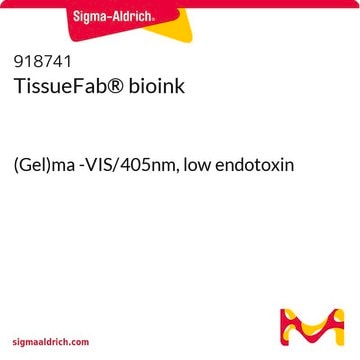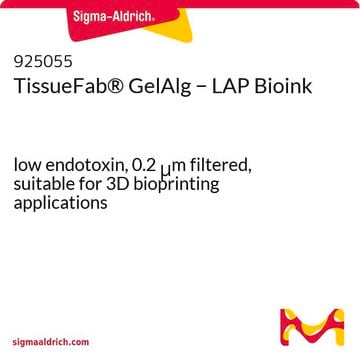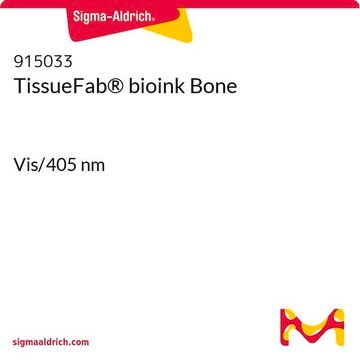922862
TissueFab® bioink
(GelAlgHA)ma -Vis/405 nm
Synonym(s):
AlgMA, Alginate, Bioink, GelMA, Gelatin, HAMA, Hyaluronic acid
About This Item
Recommended Products
Quality Level
description
Validation : HNMR at 40C
sterility
sterile-filtered (0.2μm)
form
viscous liquid (gel)
IVD
for in vitro diagnostic use
impurities
<5 CFU/g Bioburden
color
pale yellow to colorless
pH
(6.5-7.5)
viscosity
2-25 cP(37 °C)
application(s)
3D bioprinting
storage temp.
2-8°C
Looking for similar products? Visit Product Comparison Guide
General description
Application
Legal Information
Storage Class Code
10 - Combustible liquids
WGK
WGK 3
Choose from one of the most recent versions:
Certificates of Analysis (COA)
Sorry, we don't have COAs for this product available online at this time.
If you need assistance, please contact Customer Support.
Already Own This Product?
Find documentation for the products that you have recently purchased in the Document Library.
Articles
Bioinks enable 3D bioprinting of tissue constructs for drug screening and transplantation; select suitable bioinks for specific tissue engineering.
Learn how 3D bioprinting is revolutionizing drug discovery with highly-controllable cell co-culture, printable biomaterials, and its potential to simulate tissues and organs. This review paper also compares 3D bioprinting to other advanced biomimetic techniques such as organoids and organ chips.
Our team of scientists has experience in all areas of research including Life Science, Material Science, Chemical Synthesis, Chromatography, Analytical and many others.
Contact Technical Service

